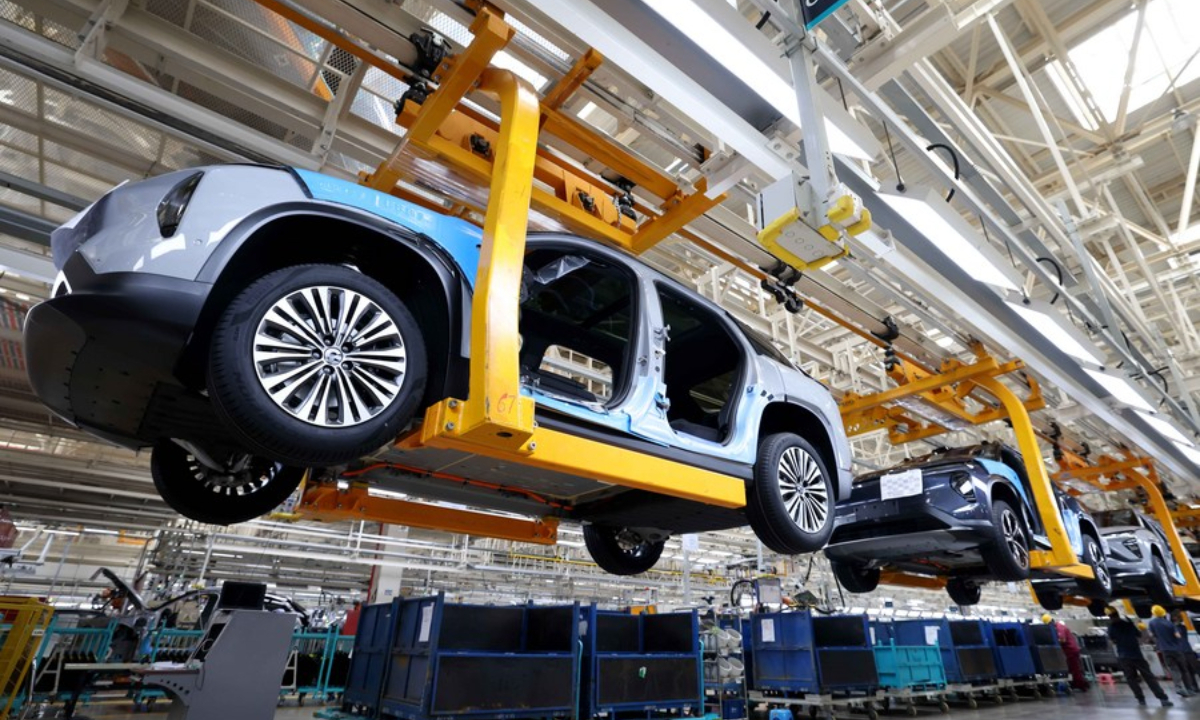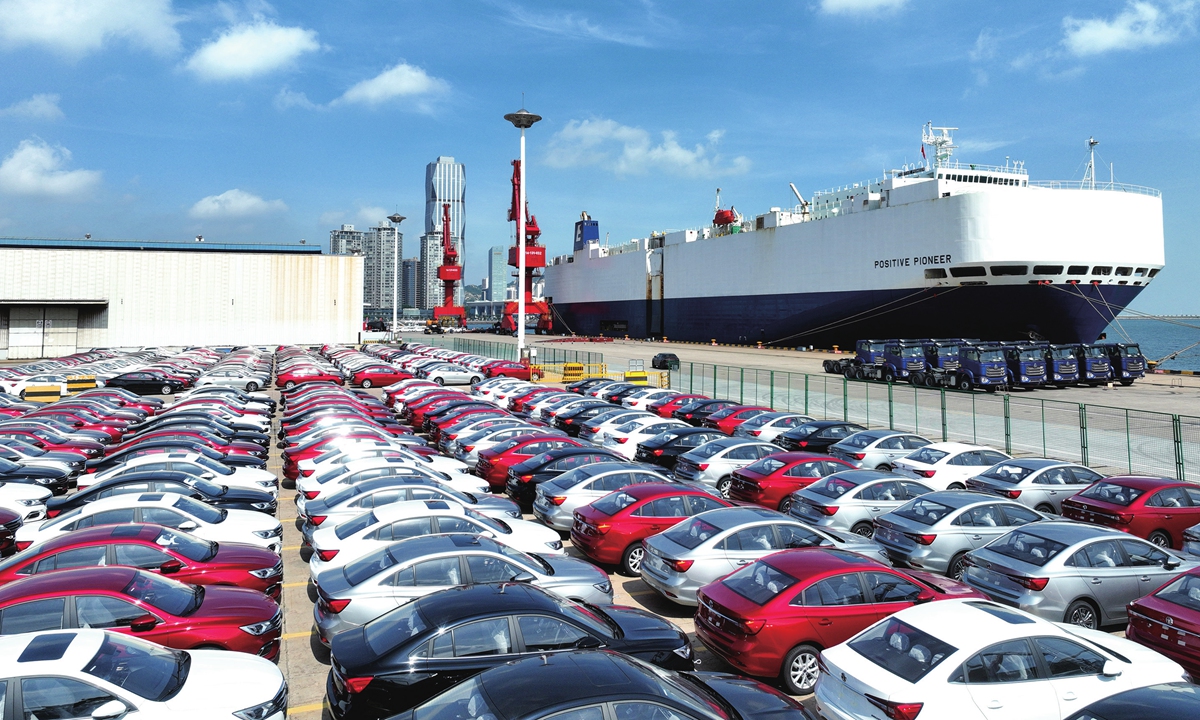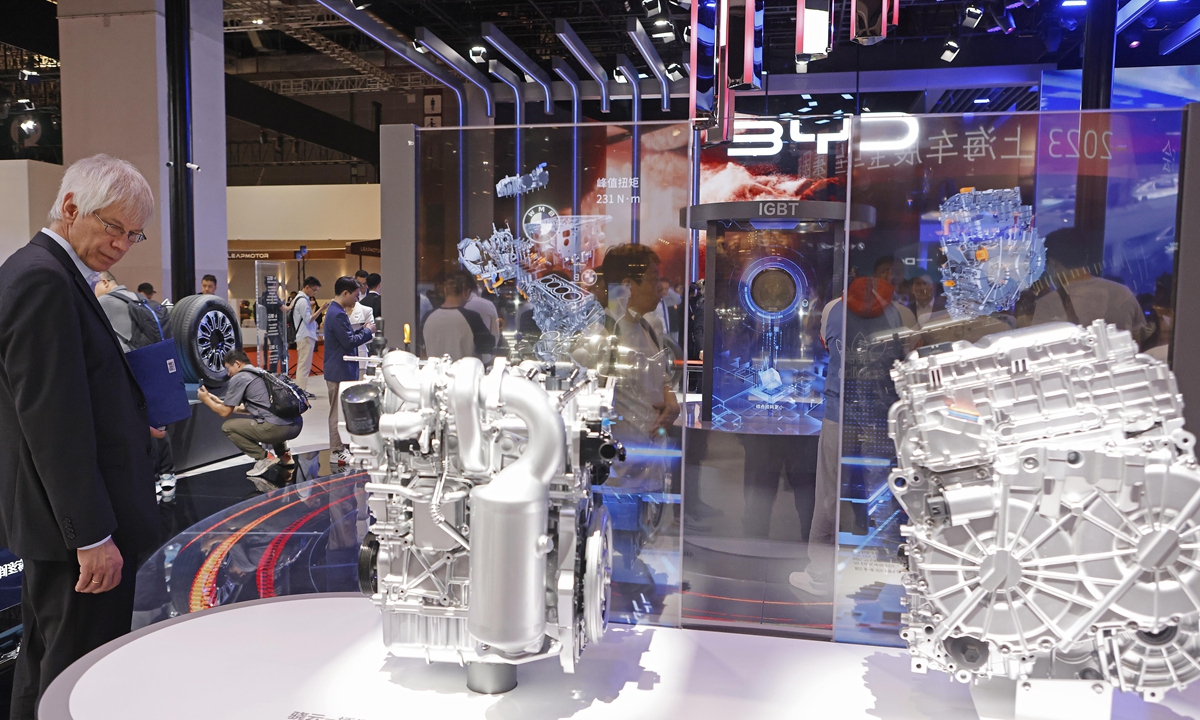EU probe of Chinese EVs is deemed 'biased,' a protectionist move
Efforts to restrict products solely based on country of origin counter to EU's WTO commitments
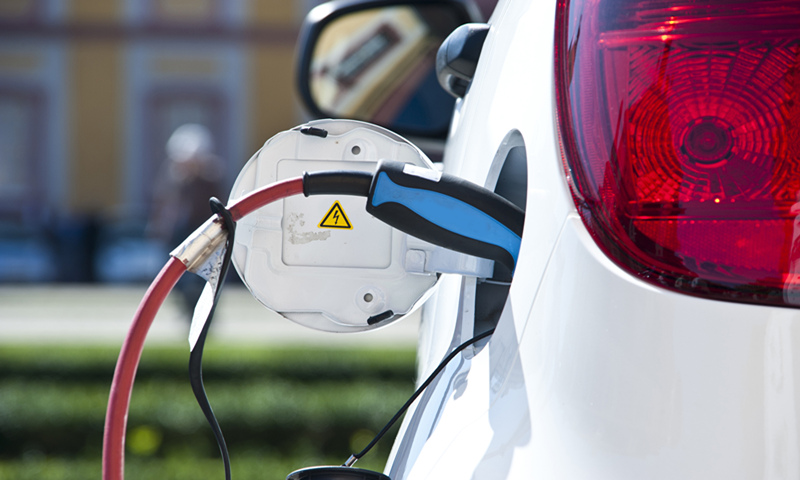
An NEV is being charged. Photo: VCG
The anti-subsidy investigation launched by the EU into Chinese electric vehicle (EV) imports is biased and shows a protectionist tendency, Chinese experts and industry insiders said on Wednesday.
European Commission President Ursula von der Leyen announced on Wednesday that the EU is launching a probe into Chinese EVs, claiming the prices of imported Chinese vehicles are being kept "artificially low by huge state subsidies."
The EU move comes as China is poised to overtake Japan to become the world's top vehicle exporter for the first time this year, fueled by strong demand for new energy vehicles (NEVs).
Chinese observers said the move came as "no surprise" as the Western media has touched on this issue for some time, which reflected EU's "biased mindset" toward Chinese-manufactured products. The act could endanger China-EU cooperation in green technologies, they noted.
The strong performance of Chinese EV makers presents a challenge for European automakers, which are slowly transitioning toward electrification, observers noted.
"The probe by the EU reflects a biased mindset, which is unwilling to believe that Chinese automakers can compete on an equal footing, and such bias has been repeatedly displayed in a number of cases in recent years," Cui Hongjian, director of the Department of European Studies at the China Institute of International Studies, told the Global Times.
Cui noted that the EU itself has subsidies outlined under various green development initiatives, environmental programs and other plans to protect its own industries, but it is "unhappy with others doing the same."
The EU believes it will exert pressure on China's trade with the probe, experts said, warning that the EU move could trigger countermeasures by China.
During the EU's earlier campaign to crack down on Chinese solar products, China answered with probes of its own into European wine and auto parts.
The China Chamber of Commerce to the EU said in a statement sent to the Global Times on Wednesday that it "strongly encourages the EU to approach the progress of China's EV industry with objectivity rather than resorting to unilateral economic and trade measures that could obstruct or elevate the development and operational expenses of Chinese EV products within the European market."
The chamber pointed out that Chinese EV makers' innovation-led growth has resulted in a substantial industrial edge within both the fiercely competitive domestic Chinese market and the global arena, and it is "crucial to emphasize that this advantage is not a product of what the commission called 'huge state subsidies'."
The EU's commitment to market openness must be translated into tangible measures, ensuring a fair, impartial and non-discriminatory business environment for foreign companies. Efforts to restrict products solely based on their country of origin would run counter to the EU's WTO commitments, the chamber said.
While meeting with the EC President on September 9 on the sidelines of the G20 Summit in New Delhi, India, Chinese Premier Li Qiang warned against politicizing economic issues or using security as an excuse to block economic cooperation.
Cui Dongshu, secretary-general of the China Passenger Car Association (CPCA), said on Wednesday that Chinese automakers could respond to the EU probe in a proactive manner to mitigate any negative impact.
"China has largely removed early-stage NEV subsidies, and I think Chinese automakers have a fairly good chance of getting through this probe by the EU," he said.
Subsidies into both public buses and private passenger cars stopped in 2022, Cui noted. "When there were subsidies in China, they were on a much smaller scale than those in European countries."
Cui Dongshu said that the EU's probe won't alter the path of China becoming the world's largest auto exporter this year, with forecasts suggesting China may export as many as 5 million vehicles in 2023.
However, experts noted that as Chinese NEVs have made big strides in a wide range of markets in recent years, they will face increasingly complex conditions abroad. They can get through to become truly successful by constantly beefing up their core competitiveness via constant innovation.
In 2022, Chinese automakers exported 545,244 NEVs to Europe, accounting for 48.66 percent of all NEV exports last year, data from the CPCA showed.
China is on the course to overtake Japan to become the world's top car exporter, as surging demand for EVs boosted overall auto exports from China, Moody's Analytics said in a research note in August.
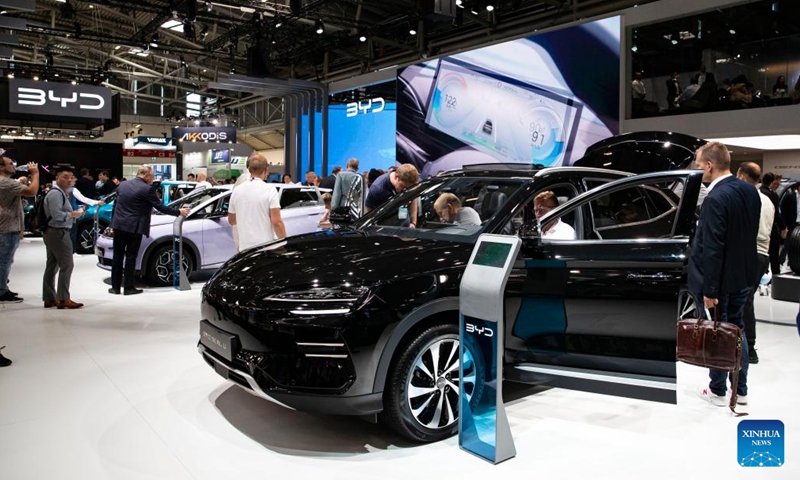
People visit the booth of Chinese carmaker BYD during the 2023 International Motor Show, officially known as the IAA MOBILITY 2023, in Munich, Germany, Sept. 5, 2023. The IAA MOBILITY 2023, one of the world's largest mobility trade fairs, opened in the southern German city of Munich on Tuesday.(Photo: Xinhua)

